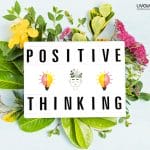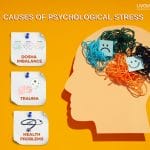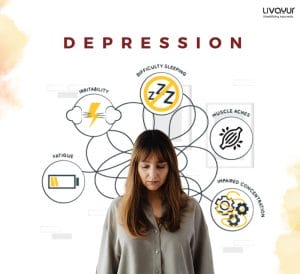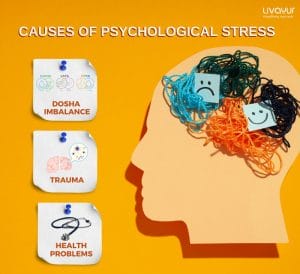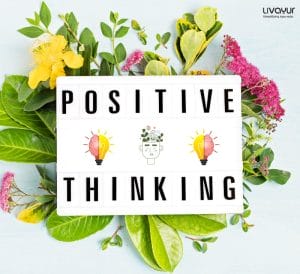This article is reviewed by an expert
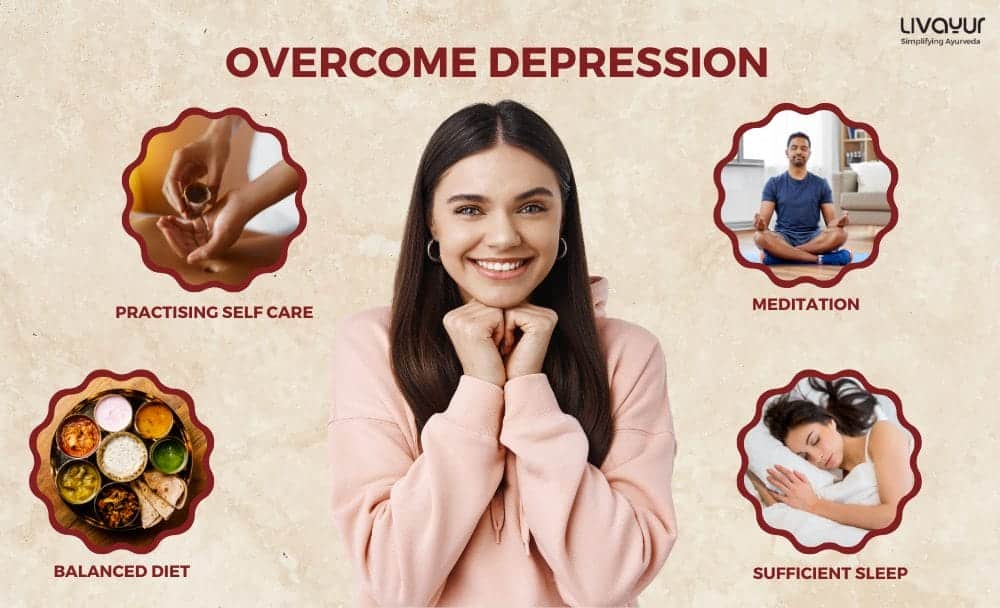
Depression is a common mental health issue that affects millions of people worldwide. According to the World Health Organization (WHO), depression is the leading cause of disability worldwide and is a significant contributor to the overall global burden of disease.[1] Ayurveda offers a holistic approach to easing the symptoms of depression by addressing the root cause of the problem. In this blog, we will discuss ten effective strategies and tips to deal with and overcome depression according to Ayurveda.
What is Depression?
Depression is a mental health disorder characterized by a persistent feeling of sadness, hopelessness, and loss of interest in activities that were once enjoyable. It can affect a person’s thoughts, behaviour, feelings, and physical well-being. Depression can range in severity from mild to severe and can last for weeks, months, or even years if left untreated. [1]
What are the Symptoms?
Symptoms of depression may include: [1]
- Feeling sad, empty or hopeless
- Loss of interest in hobbies or activities
- Changes in appetite and weight
- Sleep disturbances
- Fatigue or loss of energy
- Feelings of worthlessness or guilt
- Difficulty concentrating or making decisions
- Thoughts of death or suicide
Here are 10 Effective Strategies and Tips to Overcome Depression:
1. Identify the Root Cause
Ayurveda emphasizes the importance of identifying the root cause of depression. The cause of depression can vary from person to person and can be due to various factors such as genetics, lifestyle, Doshas and social or environmental factors. Identifying the root cause can help in developing a personalized treatment plan. [1] [2] [3]
2. Follow a Balanced Diet
According to Ayurveda, a balanced diet is essential for maintaining physical and mental health. A diet that is rich in fresh fruits, vegetables, whole grains, and lean proteins can help in reducing the symptoms of depression. Additionally, incorporating spices such as turmeric, ginger, and cinnamon into your diet can help in improving mood and reducing inflammation in the body.[3]
3. Practice Meditation
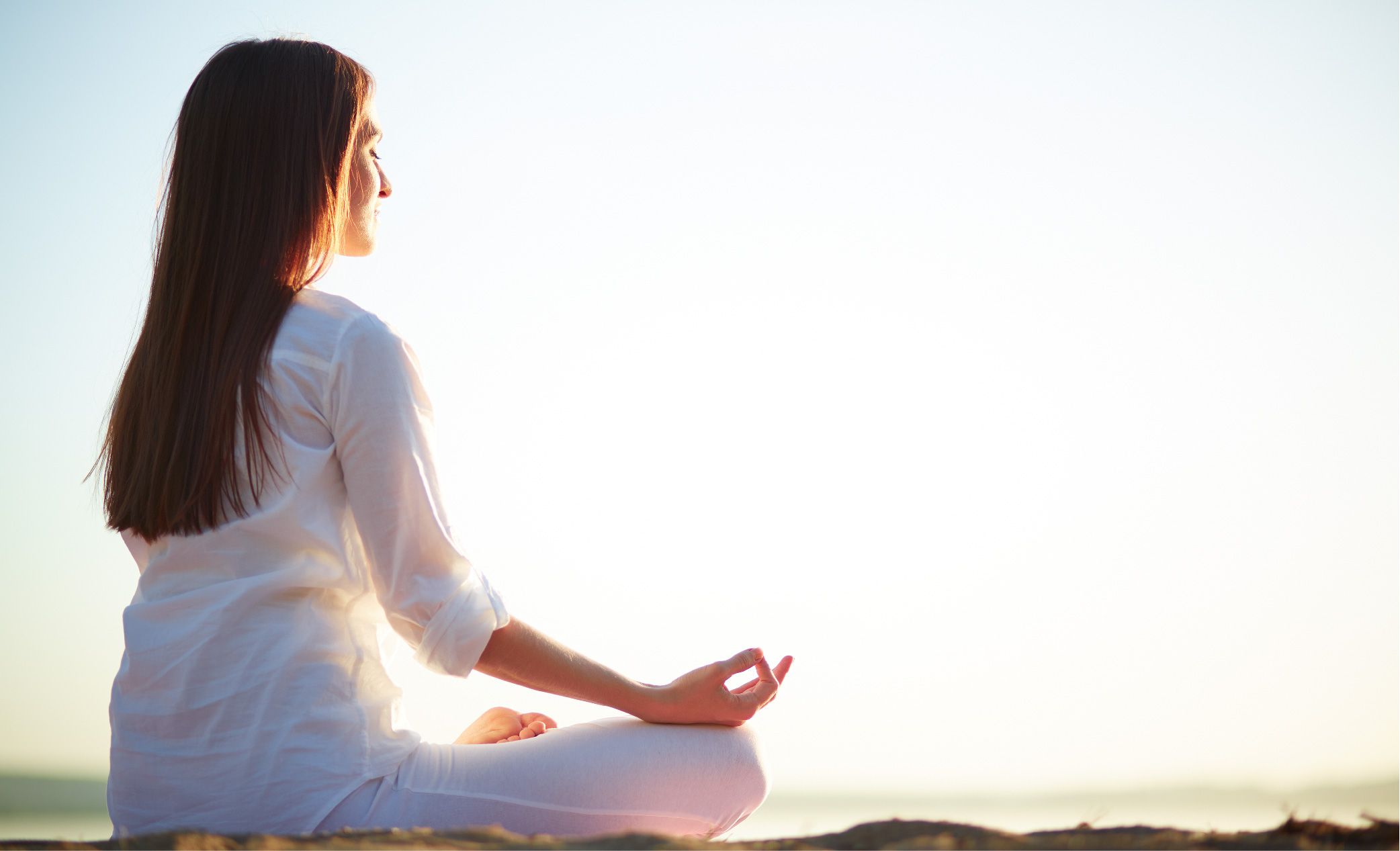
Meditation is a powerful tool for reducing stress and anxiety, which are common triggers for depression. Ayurveda recommends practising meditation to promote mental clarity and reduce negative thoughts. [4]
4. Engage in Regular Exercise
Regular exercise can help in reducing the symptoms of depression by increasing the production of endorphins, which are feel-good hormones. Ayurveda recommends engaging in moderate exercises, such as yoga or brisk walking, for at least thirty minutes a day.[4] [5]
5. Get Enough Sleep
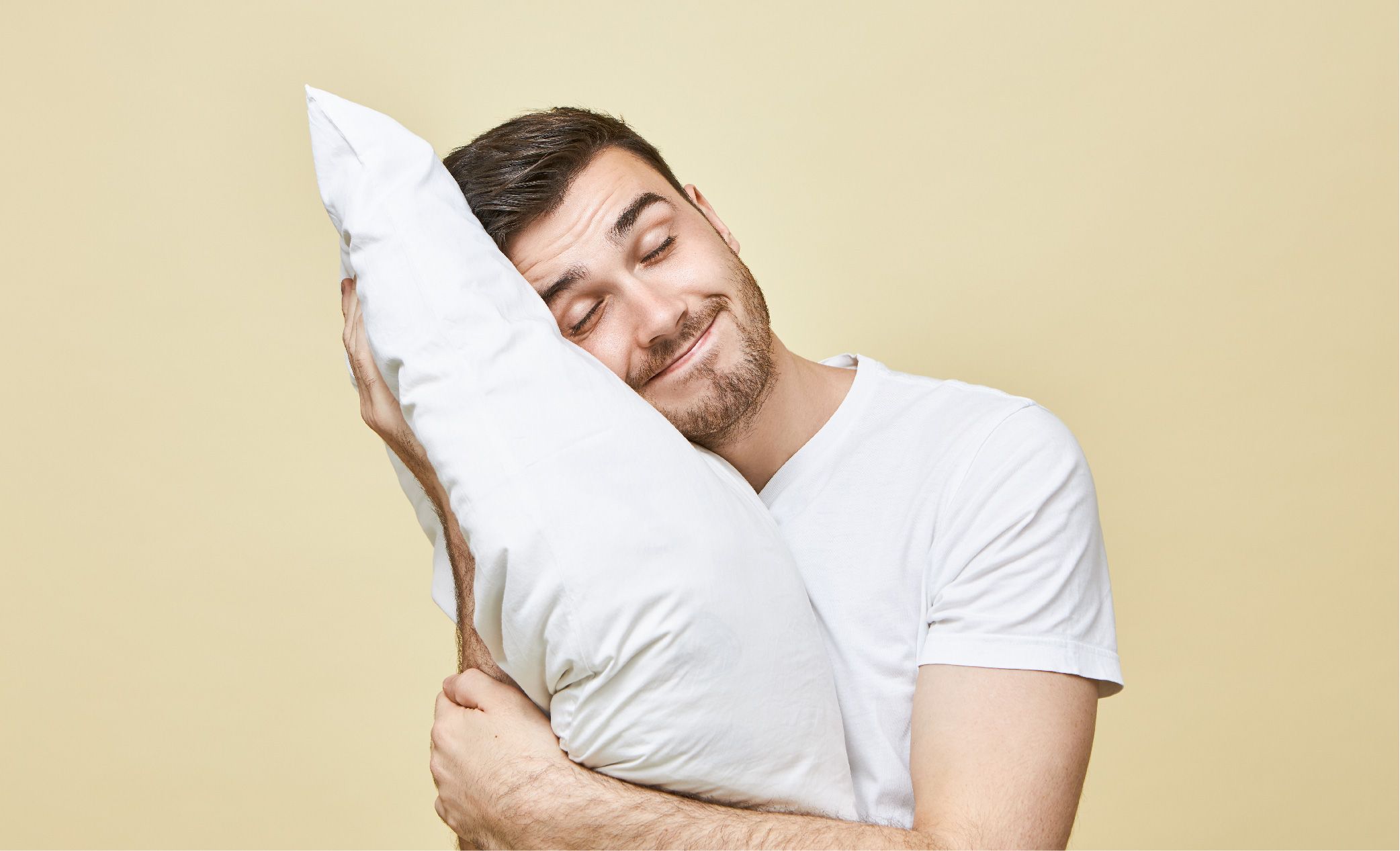
Sleep is essential for mental and physical health. Ayurveda recommends getting at least seven to eight hours of sleep each night to promote overall well-being.[6]
6. Practice Self-Care
Self-care is an essential aspect of maintaining mental health. Ayurveda recommends engaging in activities such as massage, aromatherapy, and journaling to promote relaxation and reduce stress. [2]
7. Seek Professional Help
If your depression is severe or persistent, it is essential to seek professional help. It is recommended to consult a mental health professional to develop a personalized treatment plan.
8. Use Ayurvedic Herbs
Ayurvedic herbs such as ashwagandha, brahmi, and shankhapushpi can help in reducing the symptoms of depression. These herbs have been used for centuries in Ayurvedic medicine to promote mental clarity and reduce stress and anxiety.[7] [8] [9]
9. Get Enough Sleep

Practising gratitude can reduce negative thoughts and promote a positive outlook. An effective way of reminding yourself of the positive things is writing down 3 things you are grateful for every day in your journal.[10]
10. Stay Connected
Maintaining social connections is essential for promoting mental health. Staying connected with friends and family and participating in community activities can promote a sense of belonging and reduce feelings of isolation.[11]
FAQs
1. Are there any side effects of using Ayurvedic herbs for depression?
Ayurvedic herbs are generally safe when used as directed. However, it is recommended to consult a qualified Ayurvedic practitioner or healthcare provider before using any herbal remedies. Some herbs may interact with medications or have side effects for certain individuals.
2. How long does it take for Ayurveda to start showing results for depression?
The time it takes to see improvement in depression symptoms can vary depending on the severity of the depression and the individual’s response to treatment. It is important to continue with the recommended practices and consult with a healthcare provider for personalized treatment.
3. Can Ayurveda be used as the sole treatment for depression?
Ayurveda can be a helpful complementary treatment for depression, but it is important to seek professional help for severe or persistent symptoms. A qualified healthcare professional can help develop a comprehensive treatment plan that includes a combination of approaches, such as medication and therapy.
4. Can Ayurvedic herbs be taken with antidepressants?
It is crucial to consult a qualified Ayurvedic practitioner and a medical doctor before combining Ayurvedic herbs with antidepressant medication as some herbs may interact with certain medications.
5. Can Ayurveda be used as a complementary therapy for depression?
Yes, Ayurveda can be used as a complementary therapy alongside conventional treatment for depression. However, it is essential to consult with a qualified Ayurvedic practitioner and a medical doctor to develop a personalized treatment plan.
Conclusion
Depression can be caused by a variety of factors, including genetic predisposition, chemical imbalances in the brain, life events such as trauma, stress, or loss, and certain medical conditions. While Ayurveda offers effective strategies and tips to deal with depression, it is important to note that depression is a complex mental health issue that may require a combination of approaches. Seeking professional help from a mental health professional is recommended especially for those experiencing severe or persistent symptoms.
Disclaimer: This article is only for providing generic information, please consult a trained medical practitioner every time before initiating any treatment.
References:
- Depression (who.int)
- Ayurveda management of Major Depressive Disorder: A case study – PMC (nih.gov)
- A cross comparison between Ayurvedic etiology of Major Depressive Disorder and bidirectional effect of gut dysregulation – PMC (nih.gov)
- Effect of Exercise and Meditation on Depression and Anxiety Reduction: A Systematic Review and Meta-Analysis (researchgate.net)
- Theorizing Yoga as a Mindfulness Skill (sciencedirectassets.com)
- Ayurvedic Doshas as Predictors of Sleep Quality – PMC (nih.gov)
- Critical Review On Effect Of Brahmi Ghrita In Psychiatric Disorders (researchgate.net)
- An Overview on Ashwagandha: A Rasayana (Rejuvenator) of Ayurveda | African Journal of Traditional, Complementary and Alternative Medicines (ajol.info)
- Shankhapushpi (Convolvulus pluricaulis Choisy): Validation of the Ayurvedic therapeutic claims through contemporary studies | Amin | International Journal of Green Pharmacy (IJGP)
- Positive-psychology-gratitude-and-its-role-within-mental-health-nursing.pdf (researchgate.net)
- Improving-social-functioning-and-reducing-social-isolation-and-loneliness-among-people-with-enduring-mental-illness-Report-of-a-randomised-controlled-trial-of-supported-socialisation.pdf (researchgate.net)






